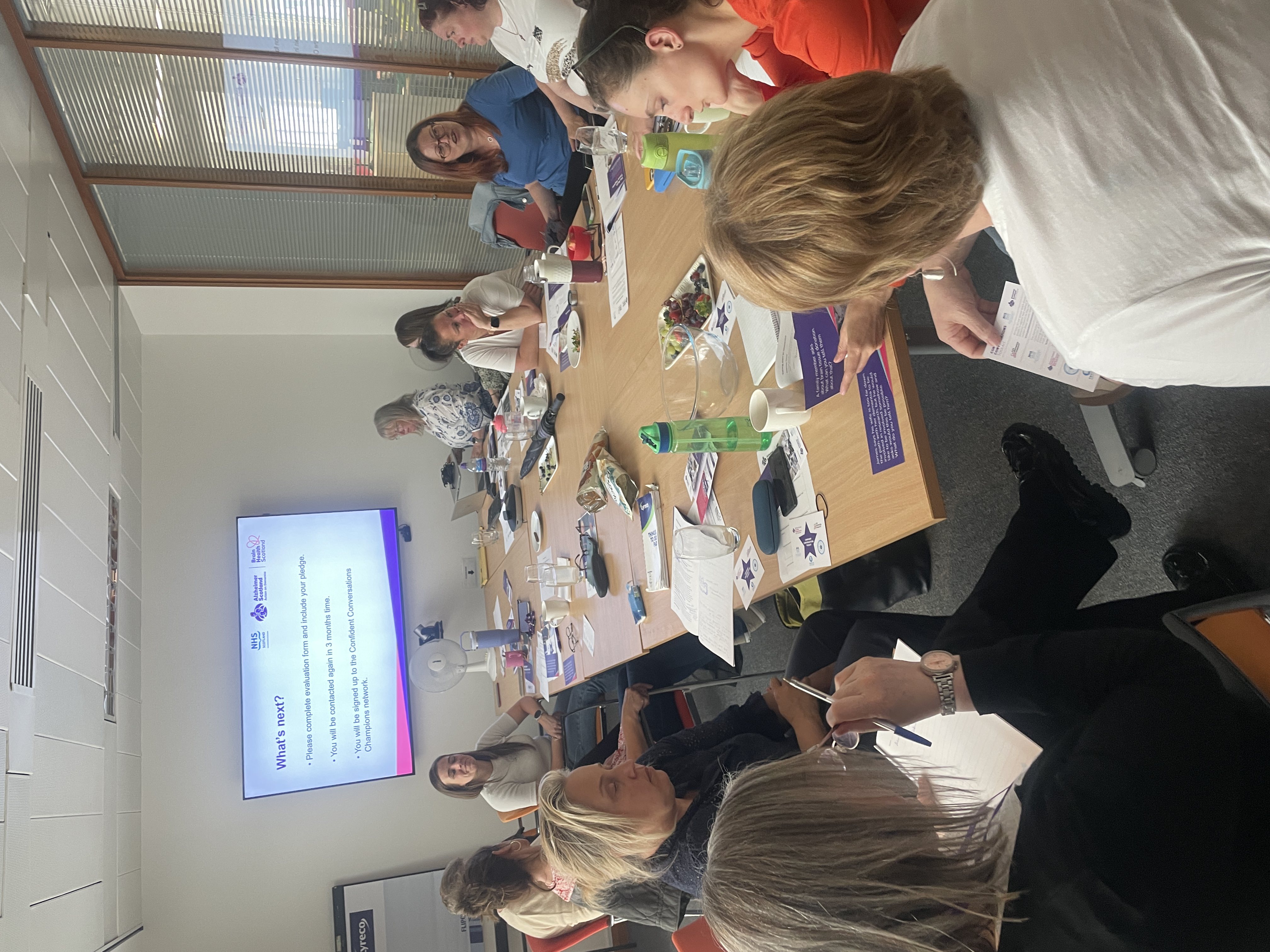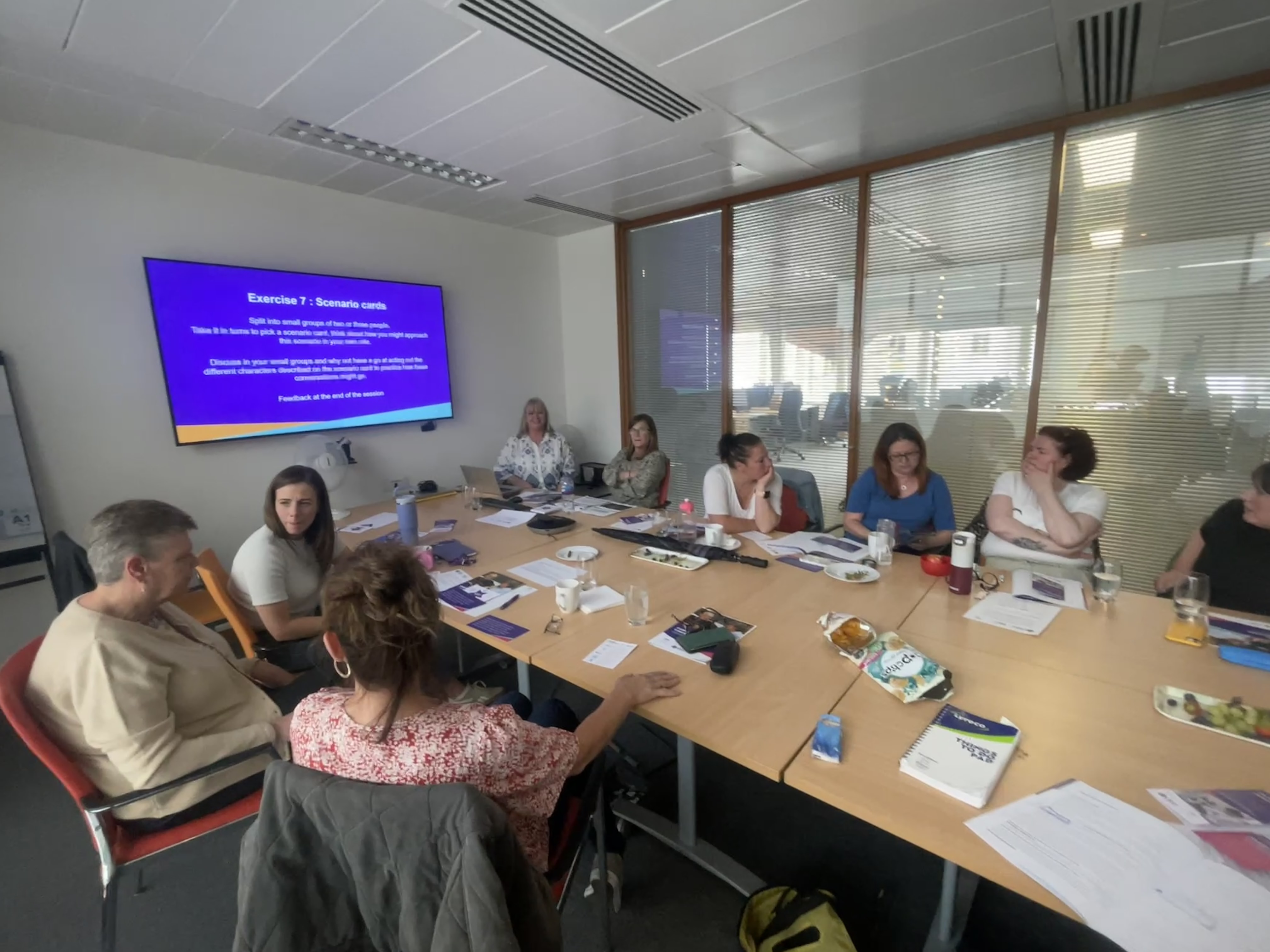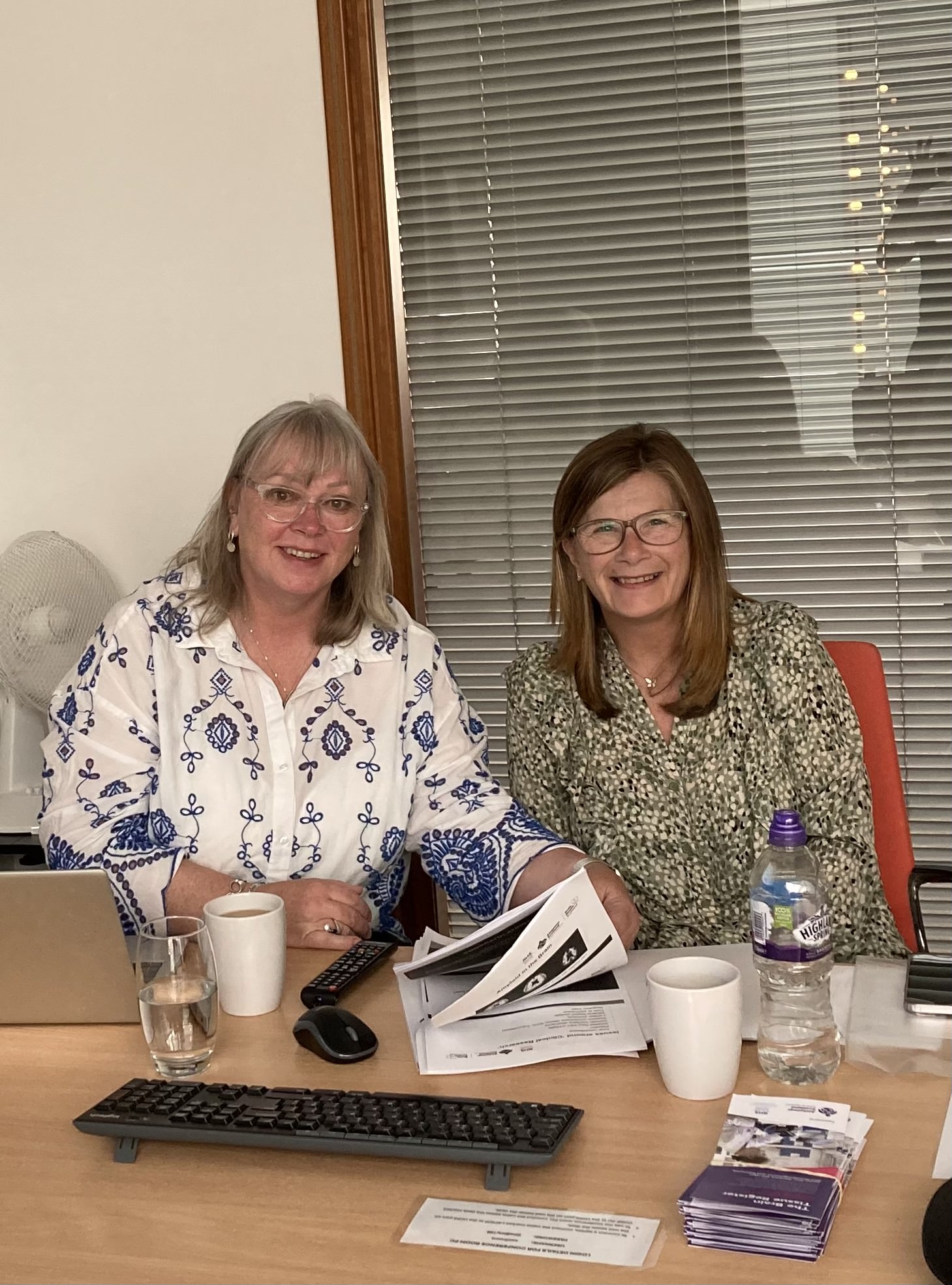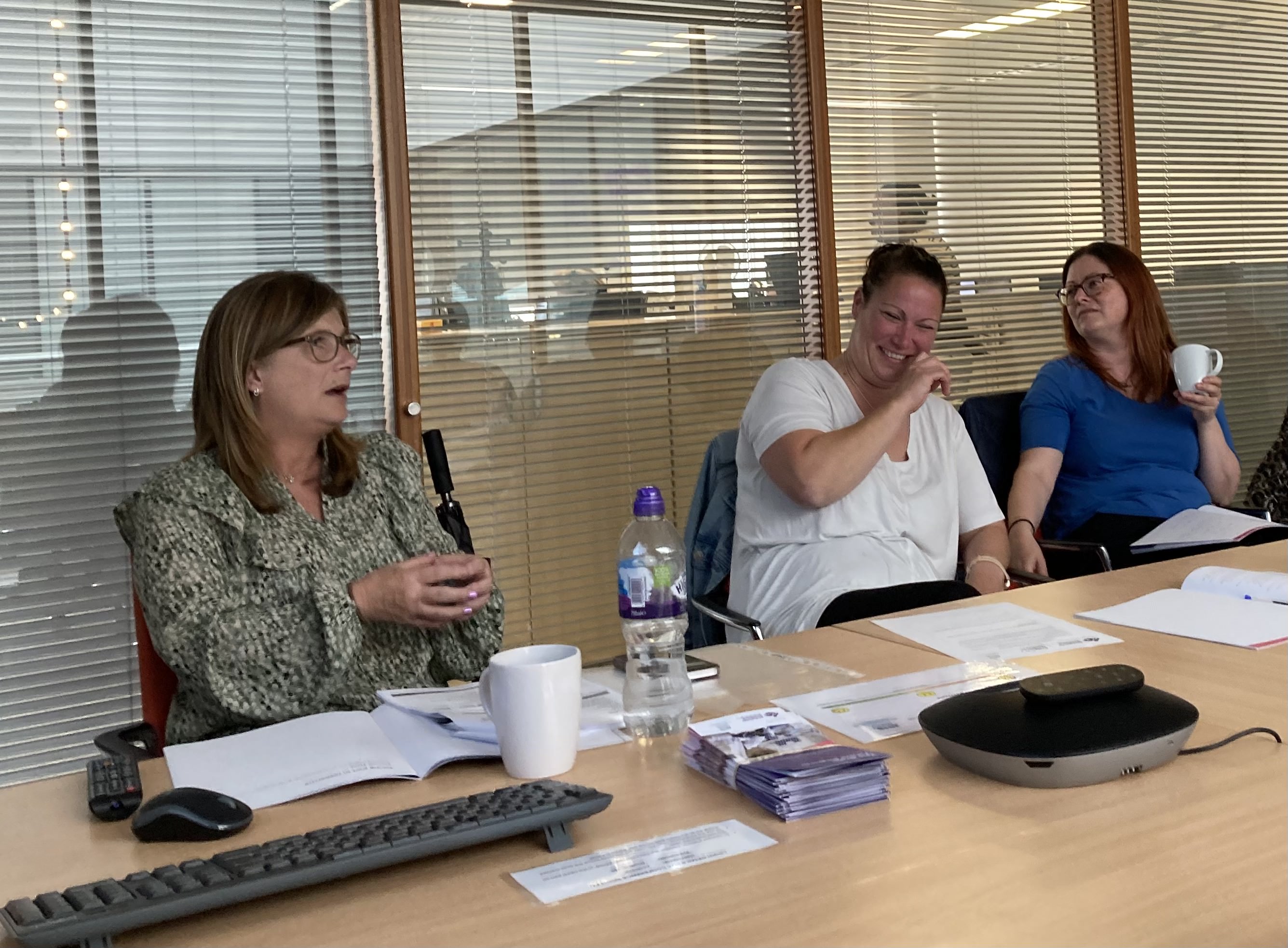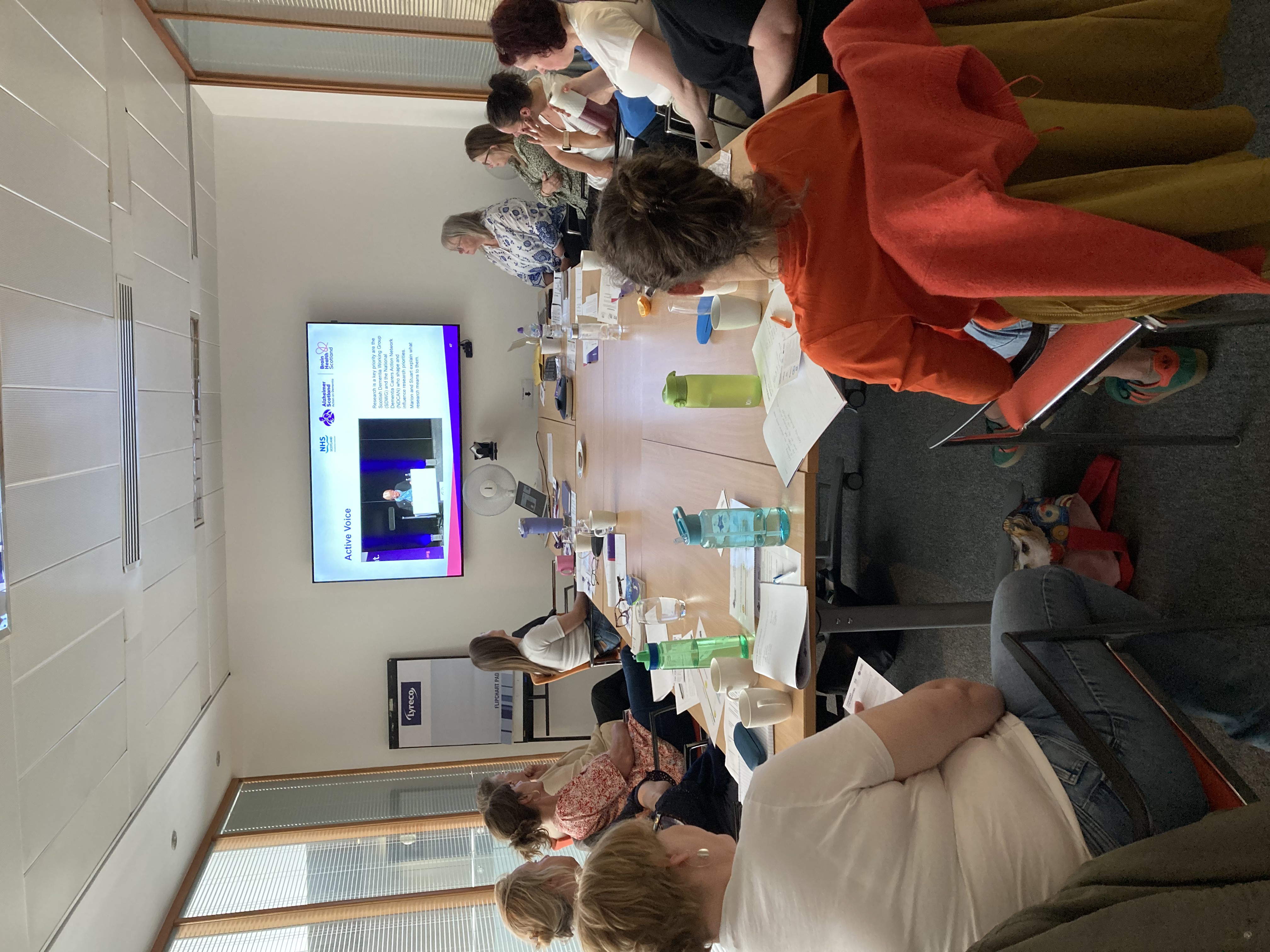Confident Conversations: Talking about research with Alzheimer Scotland staff
Recently, the SDRC had the pleasure of joining a Confident Conversations training session, delivered to Alzheimer Scotland staff who work directly with people living with dementia. The aim of the session was to build confidence and knowledge around research opportunities so that staff can feel equipped to have meaningful conversations about participation in dementia research.
Confident Conversations is a collaborative initiative between the Neuroprogressive and Dementia Network (NDN) and Alzheimer Scotland. It’s designed to empower staff, who often have the closest, most trusted relationships with people living with a dementia diagnosis and their families, to talk about research when the time is right.
We believe that the people best placed to have these conversations are those already offering care and support. This training gives practitioners the tools, confidence and understanding to start the conversation and explore research participation in an appropriate and timely way.
The session explored the different ways individuals can get involved in research. These include registering with Join Dementia Research or signing up to NDN’s Permission to Contact register. If people living with dementia or their loved ones would prefer not to take part in a study directly, there is also the opportunity to join Partners in Research which supports researchers shape and refine their research. For those diagnosed with dementia, there’s also the opportunity to contribute to future research by donating brain tissue to the Alzheimer Scotland Brain Tissue Bank after death.
Participants learned about the different types of research taking place, how studies are carried out, and how treatments are developed. The training also addressed common concerns around clinical research and highlighted the crucial role that volunteers play in making research possible. Hearing real-life stories and testimonials from those with lived experience, including past research participants, brought these messages home.
The session itself was informal, supportive, and discussion-led—creating a safe space for questions and reflections. It was led by the Strategic Manager Dr Emma Law and Jacqui Kerr, Network Manager, both of the NDN.
To measure impact, attendees were asked to rate their confidence in speaking about research at both the beginning and end of the session. It was incredibly encouraging to see that, by the end of the day, every participant not only felt more knowledgeable and confident, but also committed to putting what they’d learned into everyday practice.
A big thank you to Emma and Jacqui for inviting SDRC to be part of this interesting and informative training!
To find out more about the Network, visit the NDN’s website.

